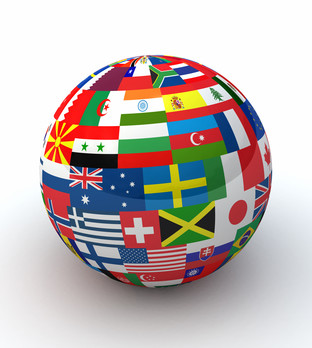Recently, I learned that a large PPC agency in our area refuses to take on international AdWords PPC projects. I can understand why they take that stance; but I was still surprised. What do they tell their clients?
I can’t imagine instructing clients to go elsewhere if they want to take their PPC campaigns to non-U.S. markets. It would be a major inconvenience for our clients and a huge lost opportunity for us.

Does that mean everyone should jump into international PPC without hesitation? Not at all. If you don’t know what you’re doing, international PPC is a minefield. (We’ve written about international PPC before, in “Are You Avoiding These 3 Trouble Areas in International PPC?”) But if you do your homework, you can use international PPC to take advantage of lower costs, less keyword competition and new markets.
At Group Twenty Seven, we’ve always included international PPC as one of many client strategies. We also work with multiple clients located outside of the US and manage their programs, which target their respective countries. Along the way, we’ve learned some lessons. If I could see into the future, I would have briefed myself on the following points at the start:
- Don’t treat all countries the same.
- Make friends with in-country teams.
- Consider boots on the ground.
Don’t Treat All Countries the Same
One of our first forays into Europe came when a client asked us to expand their PPC campaign from the Americas into the EU. As part of our research, we carefully reviewed the client’s website and discovered pages that had been translated into a few EU languages—but not all. We asked our client why pages were available in German, Italian and French but not Latvian, Dutch or Spanish?
As you might expect, the decision was market driven. Because Germany, Italy and France made up the bulk of the client’s EU business, those countries got translated pages.
This distinction gave us a valuable clue about how to structure our PPC campaign. We decided to divide the EU into two markets: A primary market consisting of Germany, Italy, U.K. and France and a secondary market consisting of remaining EU countries.
Then, we assigned resources accordingly. Primary markets would get more campaigns. We would translate ads, keywords and landing pages and target branded and non-branded keywords.
Secondary markets would get fewer campaigns with English-only ads, keywords and landing pages. We’d still target branded keywords but only top performing non-branded keywords.
Distinguishing between primary and secondary markets helped us focus our resources and maximize ROI. Clearly, if we’d treated all countries the same, our campaign would have been less successful.
Make Friends With In-Country Teams
We’ve all heard horror stories of mistranslations and unintended meanings in big-budget international advertising campaigns. (Ford Pinto in Brazil, anyone?) The only way to inoculate your campaign against these kinds of errors is to make friends with in-country teams.
Most companies operating in the EU are sensitive to language issues and will have a trusted translation company on call. This was true of our client. So, we handed the translation company our ads, keywords and landing pages and let them have at it.
But we didn’t stop there. When the company returned the translations, we gave them to our client’s in-country teams for review. And we’re glad we did. Turns out, some of the more technical lingo was incorrect and important descriptors and modifiers had been dropped to meet PPC character limits.
The translation company was an expert on language. But they weren’t experts on our client’s business. Thankfully, our client’s in-country teams were experts in both.
We now make a habit of having in-country teams review additional items, such as sitelinks and callouts. And we know better than to take a French language campaign (for example) and expect it to work in all French-speaking countries.
Given the complexities of language and translation, I hope we’ve put to rest any ideas you have about using Google Translate for your international PPC campaigns!
Consider Boots on the Ground
When you run a U.S. PPC campaign for a U.S. based company, you can reasonably expect the company to have the resources to leverage your campaign leads. After all, that’s why they’re coming to you. They want more business!
But that’s not always true in international PPC. Another U.S. based client was having great (if somewhat unexpected) success in a secondary market in the EU. Excited by the number of leads we were generating, we talked to our client about moving the country (in this case, Spain) into a primary market group to maximize our results.
To our surprise, the company said no. They didn’t have enough boots on the ground to follow up on the leads the campaign was generating, so they declined our offer to ramp things up.
Eventually, our client reversed their position and told us to proceed. They decided they’d use the success of the campaign as leverage to hire more staff and grow the in-country team.
So when you’re running your PPC campaign, know that your success may present clients with unexpected problems. (Although when it comes to problems, these are good problems to have!)
In spite of these complexities, international PPC is too ripe of an opportunity to ignore. Instead, divide your market, make the most of in-country teams and go for it!






